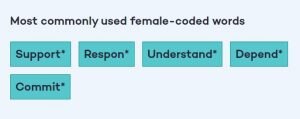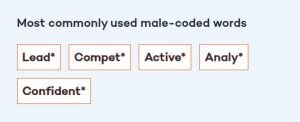How technology can help hiring managers achieve diversity and inclusion
Diversity and inclusion has become a top priority for companies in the tech sector. Discover how technology itself can help your company achieve its D&I goals.

When Covid-19 first appeared, many companies had to put their diversity and inclusion projects on hold. Now that tech recruitment has started to pick up, companies are again focusing on driving diversity in their teams.
Technology itself can be an effective ally to hiring an inclusive and diverse workforce. At CWJobs, we’ve seen a number of tech innovations help hiring managers recruit tech workers based on their culture add and skillset.
According to McKinsey’s recent Delivering Through Diversity report, companies with the most ethnically and culturally diverse boards worldwide are 43% more likely to experience higher profits – an important reflection amid Covid-19.
What’s more, Hays’ Diversity and Inclusion Report 2020 reveals that 61% of employees would consider only applying to a company with a public commitment to diversity and inclusion.
Employers that don’t have D&I as a top priority could be missing out on quality talent. Leveraging technology as part of the recruitment process is an essential practice to attracting a diverse talent pool.
Let’s take a closer look at technology’s role in creating a diverse workforce:
Attracting candidates from diverse backgrounds
We recently launched Equality Boost, programmatic retargeting solution to help companies put their diversity and inclusion policies into practice. This offers targeted programmatic advertising that helps hiring managers attract candidates from a variety of backgrounds.
Powered by data science and human experience, the platform extends the reach of recruitment campaigns, helping companies find suitable candidates quickly and cost-effectively. Recruiters also benefit from having access to end-to-end creative support that helps deliver fully-branded adverts.
Our Programmatic Account Director, Brantley Graham, recently spoke at Talent Tech Rising on the benefits of programmatic retargeting on diversity and why Equality Boost is the right solution for them.
Tackling gender bias
A recent study from our sister brand Totaljobs analysed over 76k job adverts to assess the frequency of gender-coded words in UK recruitment. The study found that of these job ads, 478l words carried gender bias, which is an average of 6 male-coded or female-coded words per ad.
Certain words can be associated with masculine or feminine stereotypes, which can unconsciously influence applicants. For example, Totaljobs’ research finds that the most commonly used male-gendered words in UK job descriptions are ‘lead’ (70,539 mentions), ‘analyse’ (35,339) and ‘competitive’ (23,079). Whereas the most commonly used female-gendered words are ‘support’ (83,095), ‘responsible’ (64,909) and ‘understanding’ (29,638).


Using gender-neutral language in job advertisements and external communications can help encourage a balance of applications from all genders. The Gender Bias Decoder created by Totaljobs, helps recruiters identify gendered words in job descriptions and emails so they can deliver more inclusive messaging to candidates.
Hiring for cultural add
According to McKinsey’s recent Delivering Through Diversity report, gender diverse teams are 21% more likely to outperform on profitability and 27% more likely to have superior value creation. Likewise, ethnically diverse teams are 33% more likely to have industry-leading profitability.
Hiring for cultural add ensures that candidates have shared values with the company and its workplace culture. In place of unstructured interviews, where bias is more common, hiring managers can use psychometric testing to gauge a candidate’s suitability.
Psychometric tests asses emotional intelligence and can help hiring managers gain a deeper insight into a candidate’s values and motivations. Hiring based on emotional IQ and performance data provides a fairer and more accurate overview of a candidate’s suitability.
One technology that can help hiring managers achieve their diversity and inclusion goals is Good&Co. This workplace culture platform uses advanced psychometrics and big data to help recruiters make better, data-driven hiring decisions.
After an applicant has completed a series of questions, Good&Co provides recruiters with a psychometric report. The report outlines the candidate’s key traits, which can help recruiters gauge the candidate’s preferred working style. Personalised interview questions are also suggested, so recruiters can create unbiased, structured interviews.
Skills-based recruitment
Skills-based hiring focuses on a candidate’s capabilities rather than their qualifications, experience. Traditional hiring processes often overlook a candidate’s talent by focusing too heavily on their background and how they perform in face-to-face interviews.
Adopting skills-based assessments can help hiring managers reduce time-to-hire, fill roles quicker and improve diversity. It helps remove bias in the recruitment process by focusing on potential rather than face-to-face first impressions.
CWJobs’ Instant Candidate Recommendations provides hiring managers with suggestions of highly relevant candidates, based on their skills and match to the role. The technology is designed by our global team of data scientists and is developed using real recruiter data.
The tool has a very high conversation rate with 94% of monthly invites sent resulting in visits to job advertisements.
CWJobs’ approach to diversity & inclusion
Find out how CWJobs can help your company champion diversity and inclusion.